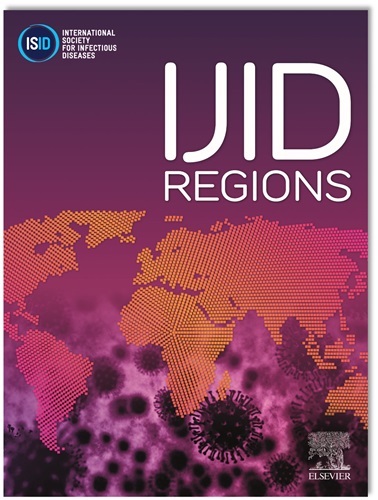挪威一项为期 22 个月的前瞻性队列研究显示,成人长期 COVID 症状的时间轨迹。
IF 4.8
2区 医学
Q1 INFECTIOUS DISEASES
引用次数: 0
摘要
背景:目前还缺乏关于长COVID症状的大型研究,这些症状是在COVID-19发病前测量的。因此,长期 COVID 的定义仍不明确:挪威 COVID-19 队列研究是一项基于人口的开放式队列研究,研究对象为挪威的成年参与者(18-96 岁)。自 2020 年 3 月 27 日起,通过社交媒体、邀请函和全国性媒体报道招募参与者。在基线和长达 22 个月的四次随访中对 14 种躯体和认知症状进行了评估。SARS-CoV-2检测情况通过强制性国家登记册或自我报告获得:随访后,15 737 名参与者的 SARS-CoV-2 检测结果为阳性,67 305 名参与者的检测结果为阴性,37 563 名参与者的检测结果为阳性,37 563 名参与者的检测结果为阴性。与阴性参与者相比,阳性参与者在感染一个月后更常报告的持续症状是记忆问题(3-6 个月:调整后的几率比(aOR)= 6.8,CI = 5.7-8.1;>18 个月:调整后的几率比(aOR)= 6.8,CI = 5.7-8.1)。1;>18 个月:aOR = 9.4,CI = 4.1-22)、注意力不集中(3-6 个月:aOR = 4.1,CI = 3.5-4.7;>18 个月:aOR = 4.4,CI = 2.0-9.7)以及疲劳、呼吸困难、嗅觉障碍和味觉障碍:COVID-19与认知症状、嗅觉障碍、味觉障碍、呼吸困难和疲劳以及总体健康状况的恶化有关,最长可达SARS-CoV-2检测后22个月,即使对COVID-19发病前的症状进行校正也是如此。本文章由计算机程序翻译,如有差异,请以英文原文为准。
Temporal trajectories of long-COVID symptoms in adults with 22 months follow-up in a prospective cohort study in Norway
Objectives
There is a lack of large studies on long-COVID symptoms with symptoms measurements before the onset of COVID-19. Therefore, long-COVID is still poorly defined.
Methods
The Norwegian COVID-19 Cohort Study is a population-based, open cohort of adult participants (aged 18-96 years) from Norway. From March 27, 2020, participants were recruited through social media, invitations, and nationwide media coverage. Fourteen somatic and cognitive symptoms were assessed at baseline and four follow-ups for up to 22 months. SARS-CoV-2 test status was obtained from a mandatory national registry or from self-report.
Results
After follow-up, 15 737 participants had a SARS-CoV-2-positive test, 67 305 had a negative test, and 37 563 were still untested. Persistent symptoms reported more frequently by positive compared with negative participants one month after infection, were memory problems (3-6 months: adjusted odds ratio (aOR) = 6.8, CI = 5.7-8.1; >18 months: aOR = 9.4, CI = 4.1-22), and concentration problems (3-6 months: aOR = 4.1, CI = 3.5-4.7; >18 months: aOR = 4.4, CI = 2.0-9.7) as well fatigue, dyspnea, anosmia and dysgeusia.
Conclusions
COVID-19 was associated with cognitive symptoms, anosmia, dysgeusia, dyspnea, and fatigue as well as worsening of overall health up to 22 months after a SARS-CoV-2 test, even when correcting for symptoms before the onset of COVID-19.
求助全文
通过发布文献求助,成功后即可免费获取论文全文。
去求助
来源期刊
CiteScore
18.90
自引率
2.40%
发文量
1020
审稿时长
30 days
期刊介绍:
International Journal of Infectious Diseases (IJID)
Publisher: International Society for Infectious Diseases
Publication Frequency: Monthly
Type: Peer-reviewed, Open Access
Scope:
Publishes original clinical and laboratory-based research.
Reports clinical trials, reviews, and some case reports.
Focuses on epidemiology, clinical diagnosis, treatment, and control of infectious diseases.
Emphasizes diseases common in under-resourced countries.

 求助内容:
求助内容: 应助结果提醒方式:
应助结果提醒方式:


